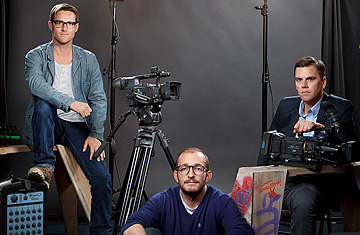
(6 of 6)
But ultimately the legacy of the LRA operation hangs on how the special ops perform. There are several worries on that score too. Manhunts take time and money--it took 10 years and hundreds of millions of dollars for the U.S. to find and kill Osama bin Laden--and the LRA operation has little of either. The senior Administration official cautions that the deployment is not open-ended--maybe a year, three at the outside. And it is an open question whether 100 U.S. troops, whatever their skills, are enough to succeed where the Ugandan army has failed for a quarter-century. The Americans are meant to limit themselves to coordinating the various armies, gathering and sharing intelligence and providing logistical support. The operation is run on a relatively shoestring budget of $35 million, which means the LRA's pursuers have no attack helicopters, and U.S. aerial surveillance of a thickly wooded area the size of France is limited to one airplane flown by a contractor whose thermal detectors do not work at night. In addition, the 2008 assault ordered by Bush backfired. Kony carried out a series of reprisal massacres and split the LRA into groups as small as five, scattering them as far as Darfur. The next few months are critical. "We don't want them to come back empty-handed," says Prendergast.
In Obo, the heart of LRA territory, expectations are high that Kony will soon face a Hollywood kind of justice. Claude Longbango, 38, fled to Obo from Passi in northern Congo in June 2009 when the LRA killed his uncle, brother and cousin and abducted his 18-year-old sister, her 2-month-old baby and a 6-year-old cousin. "They killed Osama," he says. "They must kill Kony like they killed Saddam Hussein." Guinikpara Germaine, 19, who was abducted from Obo in March 2008 and forced to become one of Kony's wives for three years, says the LRA leader himself also expects the worst. "He recognizes he is weak. He used to laugh and enjoy himself, but now, when he thinks about what he wants and his ambitions, he's like a man on drugs. He stays in his room and watches DVDs."
At night, the villagers of Obo express their new hope in dances around giant xylophones and congas. "The Americans are here/ Our saviors are here/ Our hope is here/ Let's dance," goes one composition. During the day, at a school in a Congolese refugee camp, a drummer calls the children to their own celebration dance wearing something familiar: a 2008 Obama campaign shirt. CHANGE YOU CAN BELIEVE IN, reads the slogan. The LRA may yet return. But for now, however improbably, change has come to Obo, and the people are allowing themselves to believe.
